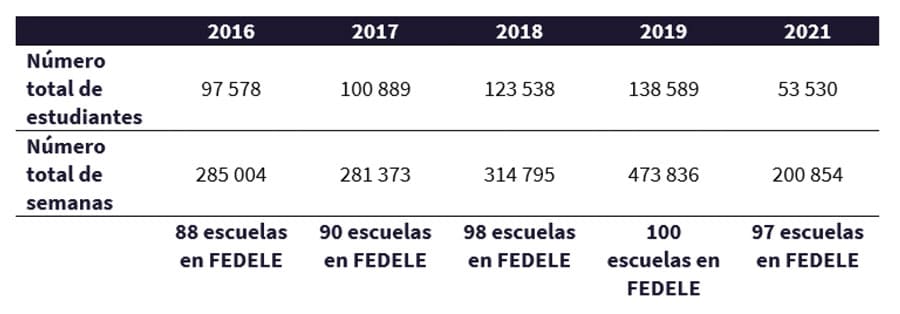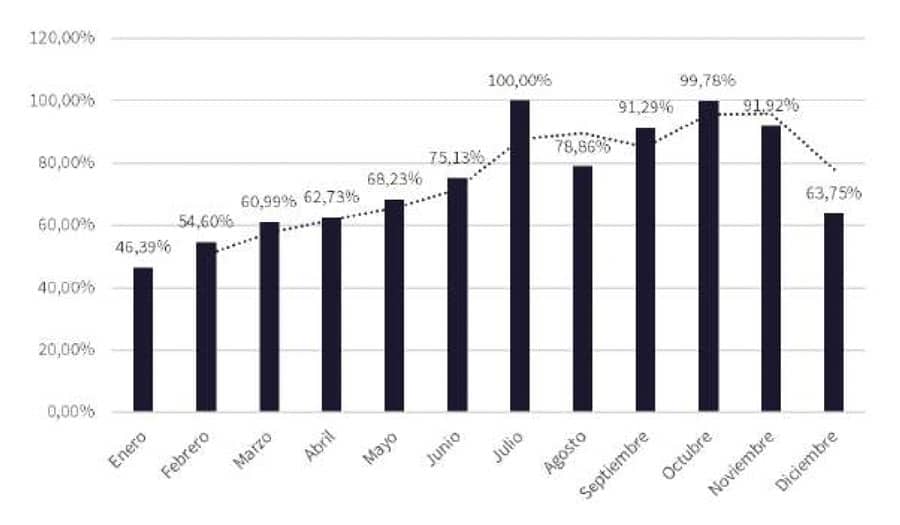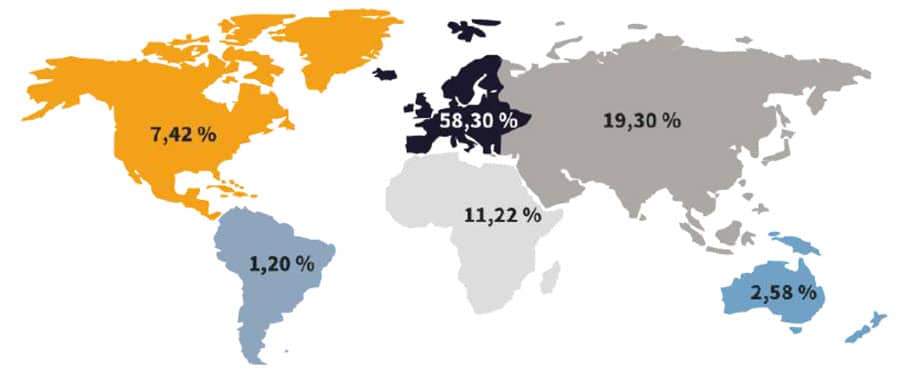Language enrolment in Spain dropped by more than 60% during COVID but recovery expected in 2022
- Enrolments in Spanish language schools – along with student weeks and revenues – have all fallen by roughly 60% during the two years of the pandemic
- A new report from Spain’s national association of language schools maps the current trends for the sector in 2021
- A survey of Spanish schools finds a high degree of optimism for recovery this year
A detailed new report from the national association of language schools in Spain paints a stark picture of the pandemic's impact on the country's language training sector, but also sounds a hopeful note for recovery this year.
In its annual report for 2021, FEDELE (Federación Española de Escuelas de Español como Lengua Extranjera) summarises statistics and trends from 97 member schools. There was no such report in 2020 so what we see in this latest study is a comparison of the 2019 pre-pandemic industry with a federation whose members have now weathered two full years of COVID-19 restrictions and disruption.
Over that period, FEDELE reports that enrolment at member schools declined by -61%, from a then-high point of more than 138,000 students in 2019 to 53,530 last year. Student weeks fell by -57% over the same two-year period.

The economic impact of the sector has fallen by a corresponding amount, from an estimated €249,300,000 in 2019 to €97,424,600 in 2021.
"Despite the adverse circumstances experienced, it should be noted that the world does not has stopped, but on the contrary, it seems that it has evolved at full speed," said FEDELE President Begoña Llovet Barquero. "Spanish continues to have great importance in its study as a second language, and despite the [disruption] that there has been in tourism, our language continues to arouse great interest."
In a member survey conducted for the annual report, roughly two-thirds of responding schools said they had positive expectations for the sector in 2022, with roughly four in ten projecting growth of between 5% and 15% and another 28% of respondents indicating growth of up to 25% for the year.
The shape of language study in Spain
The overall enrolment numbers reflect in part a decline in student groups during the pandemic. The number of individual students, as a proportion of total enrolment, rose from 54% in 2019 to nearly 78% in 2021. Roughly half of programme enrolments last year were in semi-intensive courses consisting of 15 to 25 contact hours per week. Overall, the average study duration per student in 2021 was 3.64 weeks.
As of last year, most students (65%) were following general language courses, followed by group programmes (12%), DELE (Diploma of Spanish as a Foreign Language) preparation (6%), and then more specialised language courses for specific purposes (5%). Most students enrolled last year were adults ranging from 26 to 45 years of age (34%), with young adults, aged 19 to 25 years, the next largest group at 33.5%.
A small majority (30%) of students lived with host families, with other large percentages opting for apartments (24%) or residence facilities operated by the language school (18%).
The high season for FEDELE members runs from June through November, but, as we see in the following chart, the enrolment base maintains a strong foundation throughout the rest of the year as well.

Where do students come from and how?
Not surprisingly, most language students in Spain come from elsewhere in Europe (67%), followed by Asia (13%), Africa, (8.3%), and North America (8.2%). The leading sending markets for 2021 were Germany, Italy, United States, United Kingdom, France, the Netherlands, Poland, China, and Russia.

Roughly four in ten students booked directly through a school website in 2021 (37%), with another 28% making their school booking via an agent. "The most common channels of recruitment are, firstly, recommendations and, then email campaigns," adds the FEDELE report. "This year they take a great presence positioning activities in digital search engines and advertising in social media, to the detriment of fairs, workshops, and press announcements."
For additional background, please see:















